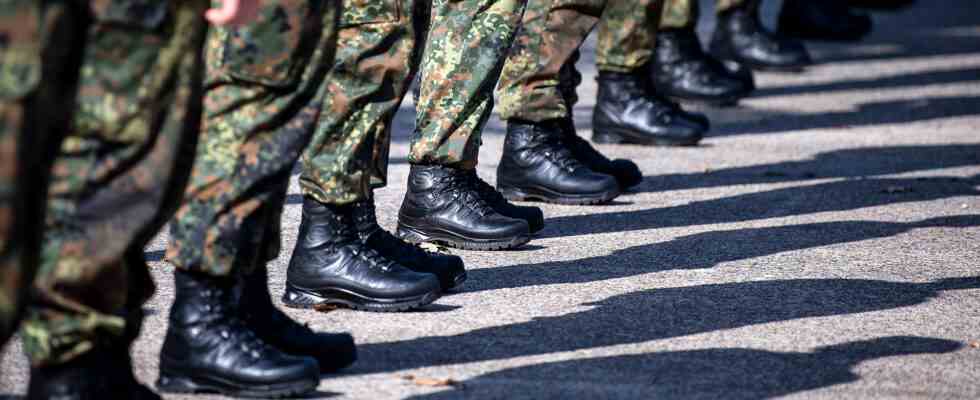Status: 10/17/2022 5:06 p.m
Despite the “turning point”: According to a study, a large majority of Germans reject a military leadership role in Europe. In addition, many fear that the Russian war against Ukraine will spread to NATO territory.
Are Russian President Vladimir Putin’s blatant nuclear threats a bluff or dead serious? This has been a much-discussed question for weeks, including among western military experts. They almost unanimously consider a Russian nuclear strike to be rather unlikely. For many people in Germany, however, Putin’s threats do raise concerns: More than two-thirds, namely 69 percent of those surveyed, are worried about a Russian nuclear strike: 31 percent are “very strong or strong”, 38 percent at least “a little” worried . This is one result of the “The Berlin Pulse” survey commissioned by the Körber Foundation.
Two other values show how much the Russian war of aggression upsets the Germans: an overwhelming majority of Germans, namely 80 percent, is concerned about the war spreading to NATO territory, such as the Baltic States or Poland. At the same time, Ukraine is currently seen as by far the greatest foreign policy challenge, ranking ahead of the energy crisis, climate and Russia. In contrast to previous years, migration hardly seems to play a role in the perception of Germans.
Bundeswehr yes, leadership role no
All this does not mean, however, that the majority of people in this country would like the Federal Republic to become more involved: as a result of the Russian war of aggression against Ukraine, Chancellor Olaf Scholz spoke of a “turning point in time” just a few days after the invasion – a deep turning point, which dealing with Moscow and strengthening our own defense capabilities.
When it comes to better equipment for the Bundeswehr, a majority is also in favor of it in the long term: 60 percent are in favor of higher defense spending on a permanent basis. But: Two out of three respondents, namely 68 percent, reject a military leadership role for Germany in Europe. “The Bundeswehr has by no means moved into the center of our country,” diagnoses Julia Ganter from the Körber Foundation.
Despite the changed world situation, around 52 percent of those surveyed still want Germany to exercise international restraint. There has been little movement in this value since 2017. If anything, the federal government should throw its diplomatic weight into the balance and less its military. That coincides with the youngest ARD Germany trendaccording to which a majority of Germans advocate greater diplomatic efforts by the federal government to end the war.
It will take time to anchor the “turning point” in people’s minds and make Germany a leading power in Europe, as Defense Minister Christine Lambrecht called for in a keynote speech a good two months ago.
Top marks for transatlantic relations
What Russia’s ruler Putin has undoubtedly achieved with his war of aggression: he has welded the West closer together in the perception of Germans. The USA is seen by 81 percent of those surveyed as a partner in protecting and defending Europe, significantly more than in the previous year. The fact that the Germans are currently giving the transatlantic relationship top marks, the best since the surveys began, is probably also due to US President Joe Biden: During the Trump years, the values were at a low point.
The perception of Russia, on the other hand, has clearly deteriorated – continuously over the past few years. However, as the evaluation of the study showed, the real turning point was caused by the poisoning of Kremlin opponent Alexei Navalny and the mass protests in Belarus in 2020, and not so much by the attack on Ukraine. But also quite remarkable: 75 percent of those surveyed still see little or no military threat in Russia.
The annual publication “The Berlin Pulse” addresses the most pressing current foreign and security policy issues from different perspectives. A central component is a current opinion poll on the foreign policy positions of the Germans. For the representative survey, Kantar Public surveyed 1088 voters aged 18 and over in Germany between August 2nd and 11th, 2022.

